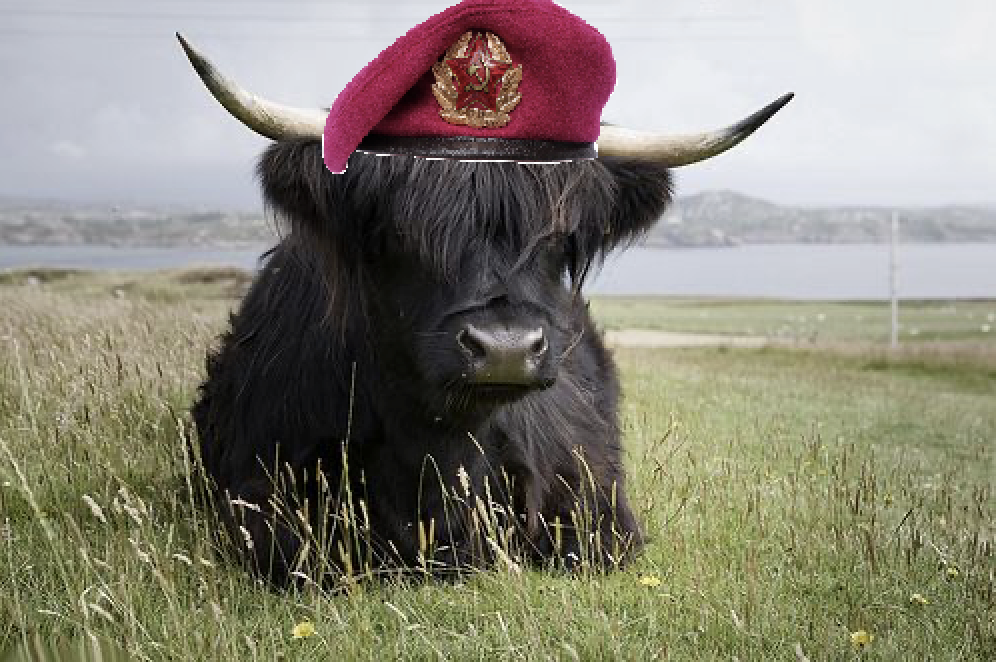On youtube, there seem to be few videos that explain dialectical materialism in a way children and liberals can understand. How do you explain dialectical thinking to someone in a very popular way?
Keep it very simple at first. It's common (but maybe not natural ;) ) to think linearly. If x changes then y changes proportionally. (y=mx+b)
But that's a simplified version of reality.
Maybe using ideas like: If I go for a walk in the forest, the forest affects me. It makes me feel calm, I can see the beauty, etc. But I also affect the forest. When I am there, fewer animals are in my vicinity. I leave foot prints, and maybe eat berries so that there are fewer for the animals.
I think starting with this give and take sort of idea can provide a foundation.
It's just a small step to: the system influences my behaviour and I influence the system through "these" real things.
Sorry, I can only teach you a noob view of historical materialism
Economic base makes superstructure (culture, society, law), which in turn, reinforces it...
Essentially, just push against individualism and keep reminding them that context (social, economic, etc) going back decades will determine much of life. It's also helpful to try to remove binary good/bad morality from politics and explain the historical context of something, eg Russia/Ukraine, North Korea. That's laying a foundation for more complex moves later.
Just remember that you're not just explaining materialism, you are helping them unlearn brain worms. And that can take a long time with a lot of conversations
I've always found (in my experience teaching first year uni science students) teaching something directly, especially if it goes against someone's fundamental understanding, is not very fruitful.
So saying "we are a product of the world we live in" might help, but usually isn't too effective.
If you ask probing questions that lead to the person discovering reality themselves, that is a lasting impression. Trust that people are smart and capable. Even if they do dumb things (we all do).
Example would be asking someone what causes the seasons on Earth, and getting them to reason it out. Albeit, a non-political question is easier, the same tactics can be used for anything really.
Nature is the proof of dialectics. It's easy to visualise the dialectic between a bee and a flower, with both of their lifecycles intrinsically dependent on the other and their material/social role. The bee exists through its metabolism, collecting pollen/nectar and supplying them to its complex hive society for use as honey. Its body evolved sacs to carry even more of it. If a flower can't self-pollinate, it has evolved to attract pollinators. It will draw from its dialectical relationship to sky/soil and synthesise new chemicals, it will evolve its body to look like the female version of a particular wasp so the males try to mate with it, it will find new ways of attaching more pollen to each bee. As long as the material conditions exist for the flower and the bee, their metabolic interaction with them will sustain and develop their dialectic with each other and their individual lives as a result of it. Take away the flower and the bee no longer exists, take away the bee and the flower no longer exists. They are structurally interdependent and no individual bee can decide to take up farming or accounting instead because the material conditions don't allow for that.
There's also climate change, the organs of the human body, predators and prey, rocks and rain forming waterways over time, and the good ole Heraclitus' "No man steps in the same river twice, for he is not the same man and it is not the same river." with a breakdown of all the ways those two things have changed as a result of their other dialectics in-between swimming sessions.
Can you link those videos? That will help me in the near future where I have to talk this stuff with my daughter.
Its an terribly dirty and overly simplistic and isn't the "end all be all" but you might be able to make headway by demonstrating it either through a "troubleshooting of a situation where there's a problem" or "kludging a solution" to a problem.
First iteration troubleshooting:
-
I have an unsliced loaf of bread.
-
I need it to be sliced.
-
I get a butter knife to cut the bread.
What happened? The butter knife didn't do a good job of cutting the bread into slices.
Second iteration troubleshooting:
-
I have an unsliced loaf of bread. I now know that using a butter knife kinda works to make slices but its not very good.
-
I need to slice the loaf of bread. But I don't want the results of using a butter knife.
-
I get a steak knife to cut the bread.
What happened? The steak knife did a somewhat better job than the butter knife at slicing the loaf of bread.
Third iteration troubleshooting:
-
I have an unsliced loaf of bread. I now know that the butter knife does a terrible job at slicing bread. I now know that a steak knife does a better job at slicing bread than the butter knife but the results still seem to be lacking.
-
I need to cut a loaf of bread into slices with better results than I get from a butter knife and steak knife.
-
I get a bread knife to cut the loaf of bread.
What happened? So far, I get the best results from the bread knife. Now I know that of the three options I've tried so far, the bread knife is the best solution going forward.
So every attempt to solve this problem has increased my knowledge and experience. I didn't forget what I learned in the early iterations so I get to build upon previous experiences and now have that moving forward.
-




